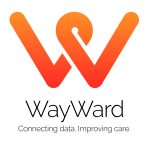WayWard update

Horizon’s WayWard project, which was funded by the Health Foundation, has recently published an interview analysis of coordination behaviours in Out-of-Hours secondary care in the journal Applied Ergonomics. Funding from UKRI means that this article is openly accessible to all under a Creative Commons Attribution 4.0 (CC BY 4.0) license.
The article describes a study of how small teams of clinicians coordinate the care of large numbers of patients across NHS hospitals out of hours: evenings, overnight, weekends and national holidays, which amounts to 76% of the time. We interviewed doctors, nurse coordinators and clinical support workers at two large urban teaching hospitals in the East Midlands and North West of England. They described a particularly challenging incident encountered during out of hours care and then we probed key decision points. In recalling particularly demanding events, clinicians explain how they normally work and why this differs. We analysed the situations, decisions and information flows that the clinicians’ described and found that the coordination of out of hours care involves adaptive behaviours. Clinicians try to pre-empt peaks in workload, based on their understanding of task allocation and staff availability among the team. They request and provide additional detail to supplement gaps in information supported by technology. They take on unexpected tasks, hidden from the task management system, such as self-organising and additional care duties.
Other research done as part of the WayWard project collected data about staff positioning and movement around hospitals, as well as structured observations about all the tasks undertaken. These interviews provide detail about the rationale and motivation for clinicians’ activities. The interview method has since been used by other researchers, with more findings beginning to emerge. Since the research was undertaken members of the project team have dispersed to new jobs at other Universities, in industry and even on the other side of the world, so being reunited in print as co-authors is particularly pleasing in this case. More information about the WayWard project and its other outputs can be found here














